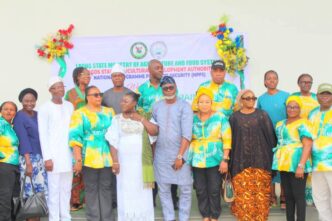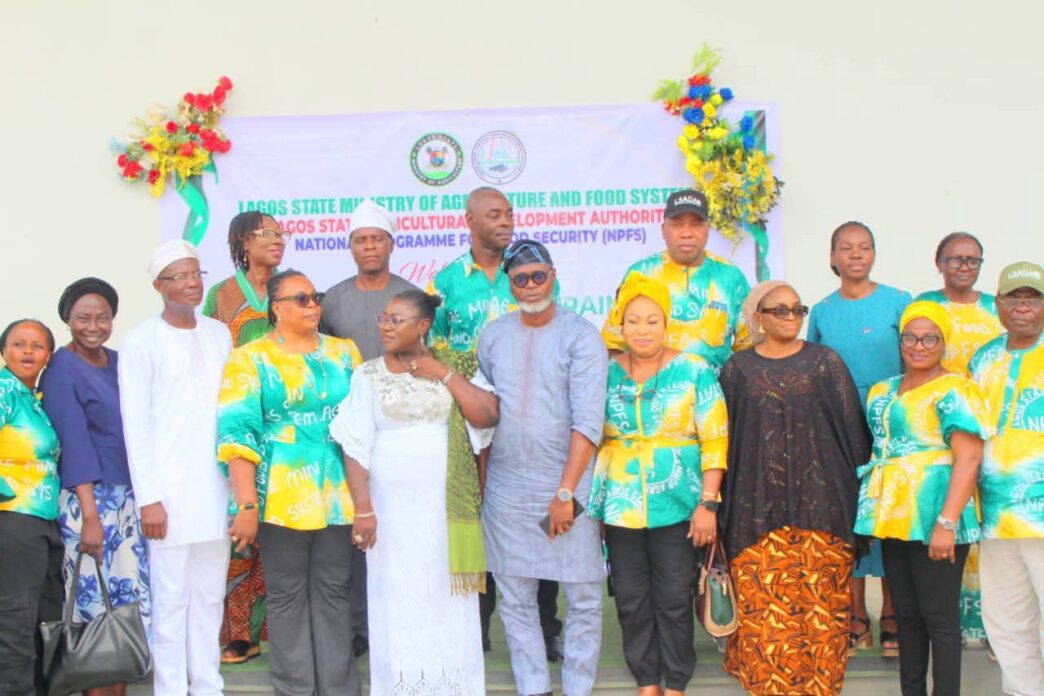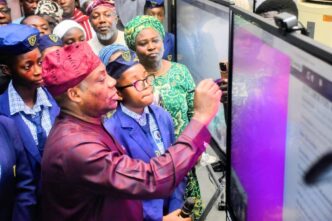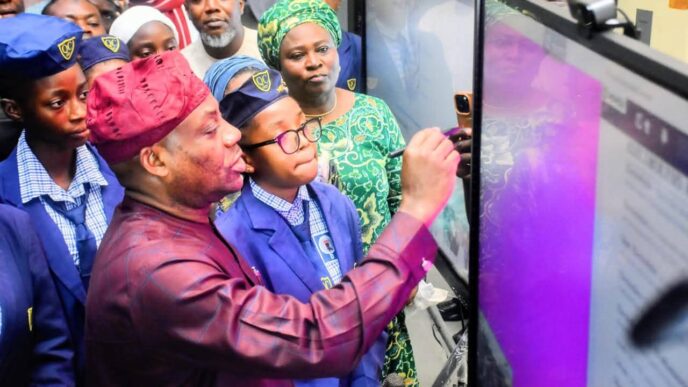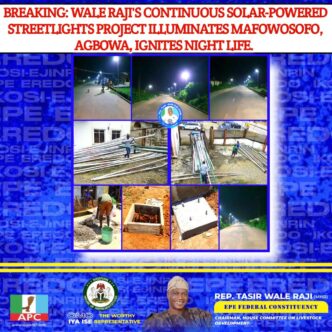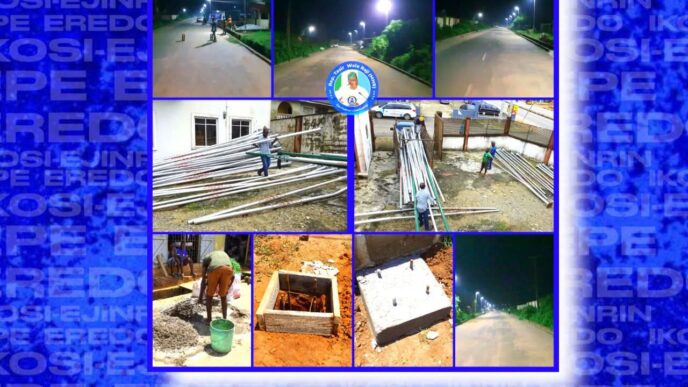The Lagos State Government has called on farmers across the state to embrace agricultural insurance as a critical component of risk management and sustainability in farming.
EpeInsights reports that the appeal was made by the Commissioner for Agriculture and Food Systems, Ms. Abisola Olusanya, during a two-day capacity-building workshop organised by the Lagos State Agricultural Development Authority (LSADA) for selected farmers under the National Programme for Food Security (NPFS).
The event, which took place on October 9, 2025, at the Fresh Food Produce Hub in Idi-Oro, Mushin, focused on empowering farmers to strengthen their resilience and financial management.
Represented by the Director of Agribusiness, Mrs. Aramide Ganzalo, the Commissioner explained that the workshop theme, “Strengthening Farming Communities Through Financial Management, Loan Repayment, and Agricultural Insurance: Transitioning from Simple to Mechanised Farming,” underscores the State Government’s ongoing commitment to supporting farmers with tools for productivity, resilience and business growth.
Olusanya highlighted that agricultural insurance is not merely an option but a necessity for every serious farmer, particularly in an era of unpredictable climate conditions and market instability.
“Agricultural insurance is designed for the benefit of farmers. Over the years, many have suffered devastating losses, and the government has had to intervene with compensation,” she said.
“Rather than relying solely on government assistance, insurance allows farmers to recover losses directly through insurance providers. We insure our cars, not because we expect accidents, but as a safeguard farming should be treated the same way.”
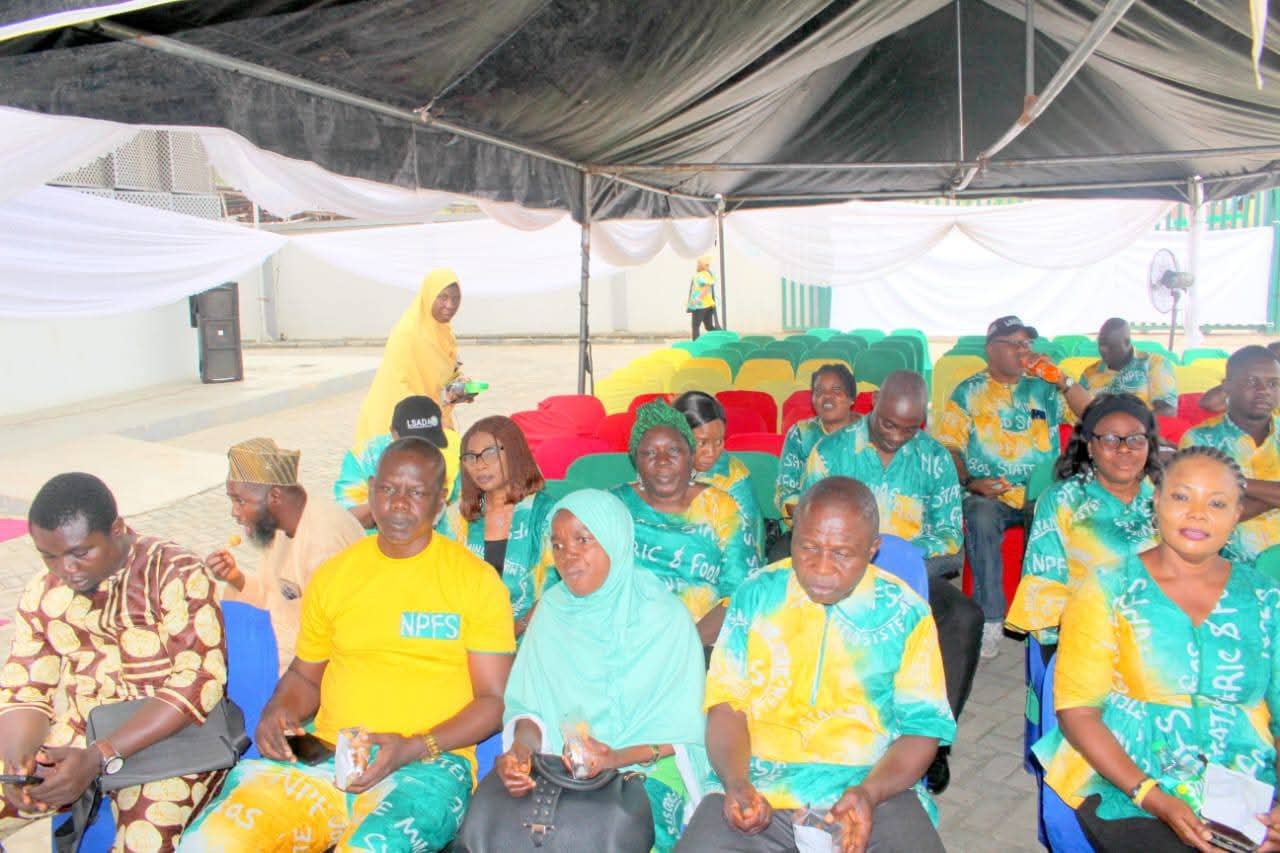
The Commissioner further revealed that the state government is considering making proof of agricultural insurance a prerequisite for farmers to access certain forms of government support in the future.
“While it’s not yet mandatory, we are strongly encouraging farmers to embrace this safety net. It’s better to be insured and secure than to be exposed to unforeseen events,” she added.
In her welcome address, Mrs. Aderonke Toju-Tubi, Coordinating Director of LSADA, reiterated the agency’s commitment to building a sustainable agricultural ecosystem through financial literacy, mechanisation, and efficient resource management.
“This training aims to enhance farmers’ capacity in financial management, loan repayment discipline, and risk mitigation through agricultural insurance,” she said.
“Improving financial literacy will not only sustain ongoing credit schemes but also strengthen trust between farmers and financial institutions, which is vital for long-term agricultural financing.”
Toju-Tubi also stressed that farming remains a cornerstone of Nigeria’s economy and a key driver of rural livelihoods.
She noted that continuous engagement and education are crucial in helping farmers transition from subsistence to mechanised agriculture.
“Farming is the backbone of our economy and the lifeline of our rural communities. This forum provides a platform for reflection, strategy, and empowerment. We are equipping our farmers with the knowledge and tools needed to succeed in an evolving agricultural landscape,” she stated.
Also speaking at the event, the Monitoring and Evaluation Officer of the NPFS, Mrs. Oluwatosin Ganzalo, addressed the persistent challenges that farmers face in accessing credit facilities from commercial banks. She disclosed that the Lagos State Government now disburses funds directly to farmer clusters to enhance accountability and reach.
“The funds are channelled to clusters and later returned to the apex body for redistribution. So far, over 5,000 farmers have benefited from this model, and about 370 participants are currently undergoing training under the National Programme for Food Security,” Ganzalo explained.
The workshop provided an interactive platform where farmers discussed modern agricultural financing models, risk management strategies, and innovations in mechanised farming.
Participants expressed appreciation to the state government for its continued investment in agriculture and commitment to empowering the next generation of farmers.
The initiative aligns with Governor Babajide Sanwo-Olu’s “A Greater Lagos Rising” agenda, which prioritises sustainable agriculture, youth empowerment, and food security as critical components of economic development.
